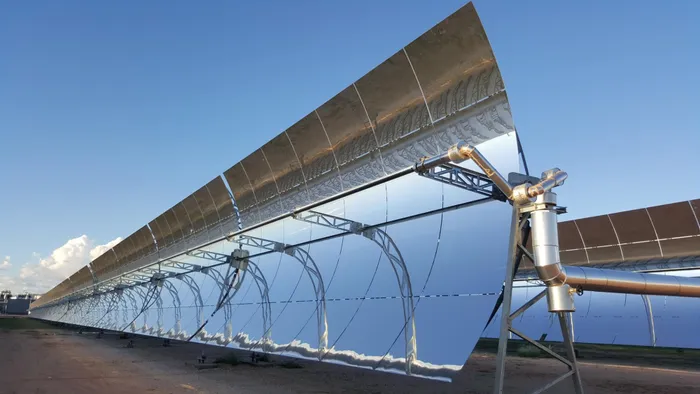
Johannesburg - Woolworths gets 4 out of 10, Pick n Pay 3 out of 10, but Spar and Shoprite fare the worst with scores of 1.5 and 0 for their commitment to renewable energy in their stores across South Africa.
This is according to a new Greenpeace Africa report, Shopping Clean: Retailers and Renewable Energy, which hopes to encourage South Africa’s top five retailers, including Massmart, to become “renewable-energy champions” who will “show solar energy some love”.
Read: Renewable energy set to balloon
The study, released today, ranks the retailers in four criteria: energy transparency, commitment to renewable energy, greenhouse gas mitigation and lobbying for renewable energy.
But they perform poorly, explains Penny-Jane Cooke, a climate and energy campaigner for the environmental lobby group. “Ranking the five retailers against one another makes it clear that none of them are doing particularly well when it comes to a commitment to a 100 percent renewable energy vision,” she explains.
“None are engaged in active lobbying for the barriers to renewable energy to be removed, which is an essential step if 100 percent vision is to be achieved, and this has heavily impacted on their scores.”
Read: Huge appetite for investment in renewable energy
Collectively, the report declares, if the annual electricity consumption for each of the top five retailers is compared to the average electricity consumption of households in South Africa, they could free enough energy to power at least 178 400 households if they switched to renewable energy.
Pick n Pay, alone, for example, could “liberate” enough electricity to supply 65 000 households in South Africa.
Renewable energy, says Greenpeace Africa, provides “a real opportunity for South Africa to move away from a developmental path based on polluting coal and expensive nuclear power”.
It identifies Woolworths as the only retailer that has “taken the critical step” of stating its intentions to a commitment to achieve a 100 percent renewable energy target by 2030, though its report notes that “Woolworths has not as yet provided Greenpeace Africa with a detailed plan as to how they will achieve this target”.
Woolworths and Pick n Pay currently feature solar panel installations that contribute a small percentage of renewable energy to their overall operations.
“In addition, both Woolworths and Massmart have identified pilot solar projects for distribution centres and stores respectively, to be rolled out this year.”
In the report, Massmart scores 3.5 out of 10. Shoprite receives the worst score, “possibly due to a complete lack of transparency with regard to company energy information”.
The report notes plans by the Spar Group to start a pilot project involving a renewable energy installation this year.
“No information was available as to the size of this or implementation time-frames.”
While the report details how the major retailers have begun to take steps towards a renewable powered future, the current levels of ambition are inadequate, considering that South Africa obtains 85 percent of its electricity from coal and is a leading emitter of polluting greenhouse gases.
“Climate change, driven by the burning of fossil fuels, threatens all continents, living systems and communities, and has been particularly evident in South Africa as the country experiences one of the worst droughts in over 30 years,” the report adds.
South Africa is facing a crisis in its electricity system because of an unreliable supply, rapidly increasing costs and delays in the construction of Medupi and Kusile, while large scale load shedding in 2014 “seriously damaged and constrained the economy”.
The five retailers “can help lead the way” by committing to use 100 percent renewable energy. “Installing solar panels would reduce their electricity costs, reduce pressure on the grid and create a cleaner electricity system: a win for retailers and shoppers.”
THE STAR